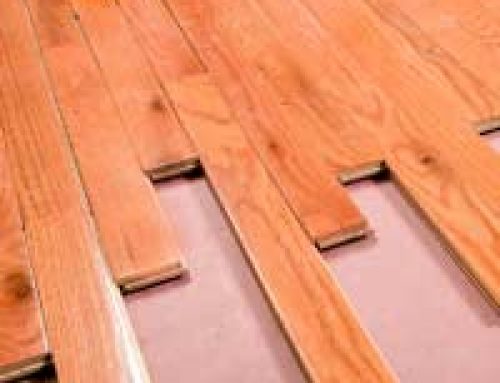
As we all become increasingly aware of the importance of being environmentally responsible and caring for our planet so that we preserve our natural resources, we are also becoming increasingly aware that being “green” has many advantages for our own health too!
A great example of this is flooring – choosing sustainable flooring, whether it is made from recycled materials, renewable natural resources, reclaimed wood or natural plant and animal fibres, has fantastic benefits not only for the environment but for us and our families as well.
Why it’s Good for the Environment…
The traditional flooring industry has many negative impacts on the environment. First, there are the toxic chemicals used in the manufacturing processes – these include the petroleum by-products used to make many synthetic flooring materials and the volatile organic compounds (VOC’s) and other hazardous chemicals used in the special treatments and finishes, to provide properties like stain – and fire-resistance.
Next, huge amounts of industrial waste and pollution are released into the environment, poisoning fragile eco-systems for decades after commercial operations have ceased. Furthermore, the transport and distribution of flooring requires energy from burning fossil fuels, further adding to the carbon emissions that are causing global warming and dangerous climate change. Last but not least, traditional flooring devours our precious natural resources – such as timber and water – often at a rate which is non-renewable or unsustainable.
Sustainable flooring, on the other hand, is flooring that is manufactured with the environment in mind. It is made up of renewable natural materials which have been sustainably grown and harvested – whether this is <#67#>cork<#>, <#69#>bamboo<#>, <#68#>classic wood<#> from sustainably-managed forests, natural plant fibre coverings like sisal or even wool carpets.
The collection of these materials is done with minimum damage to the surrounding environment and local eco-systems, thus maintaining biodiversity as well as preserving local communities.
In many cases, ensuring that the local workers are paid a fair price for the product also ensures that they will not resort to harmful practices in a desperate bid to increase profits. If any land does have to be disturbed (eg. a quarry) then the project is carefully planned and managed so that habitats, plants and wildlife are carefully transferred and the eco-system re-established in another site.
In other cases, sustainable flooring is made of recycled materials, such as recycled metal, glass and leather – or reclaimed wood – which prevent waste and re-used materials in the most efficient way. Even the manufacturing processes have been given considerable thought and everything is kept as natural as possible. Since many of the natural flooring materials come with their own beneficial properties (eg. natural anti-bacterial properties, natural fire-resistance, natural anti-static, natural moisture resistance) there is often no need to use artificial treatments of chemicals.
In addition, any adhesives and other chemicals used in installation are plant-based and no-toxic, or used in as limited quantities as possible (eg, nailing wood flooring down instead of using adhesives).
Why it’s Good For You Too…
When you’re making choices that are good for the environment, you are invariable making choices that are good for you too. Studies have shown that traditional flooring is a major source of indoor pollutants, filling the air of your home and work space with undetectable fumes which nevertheless contain hundreds of volatile organic compounds (VOCs), including known and suspected carcinogens like formaldehyde and benzene.
These chemicals can take years to dissipate and can cause countless respiratory, allergic or even serious organ illnesses in the meantime. Synthetic carpets – which is in the majority of homes – is one of the worst culprits. It is usually made of nylon, a petroleum-based product, and outgases a high level of VOC’s as well as harbouring many allergens.
Other flooring, such as vinyl, can also be petroleum-based (eg. PVC) or contain chemicals such as phthalates that have raised such health concerns it is banned from use in children’s toys. In fact, conventional flooring – especially synthetic carpets – have sometime been labelled a “toxic sponge” and with good reason!
Even hardwood floors – the only “natural” conventional flooring – can still be filled with chemicals due to its finishing, any treatments on its surface and the adhesives used in its installation.
Opting for sustainable flooring can greatly minimise any indoor pollution and help to mitigate any health problems, especially if there are those in the family who suffer from respiratory or allergic conditions. With the wide range of sustainable flooring now, made from eco-friendly or recycled materials – there is something to suit every taste, practical requirement and budget – in many cases, when you consider the long-term benefits, sustainable flooring can be cheaper than conventional flooring and carpets, despite what the initial price labels say. So choose sustainable flooring as a responsible way to enhance both your health and that of the environment.




